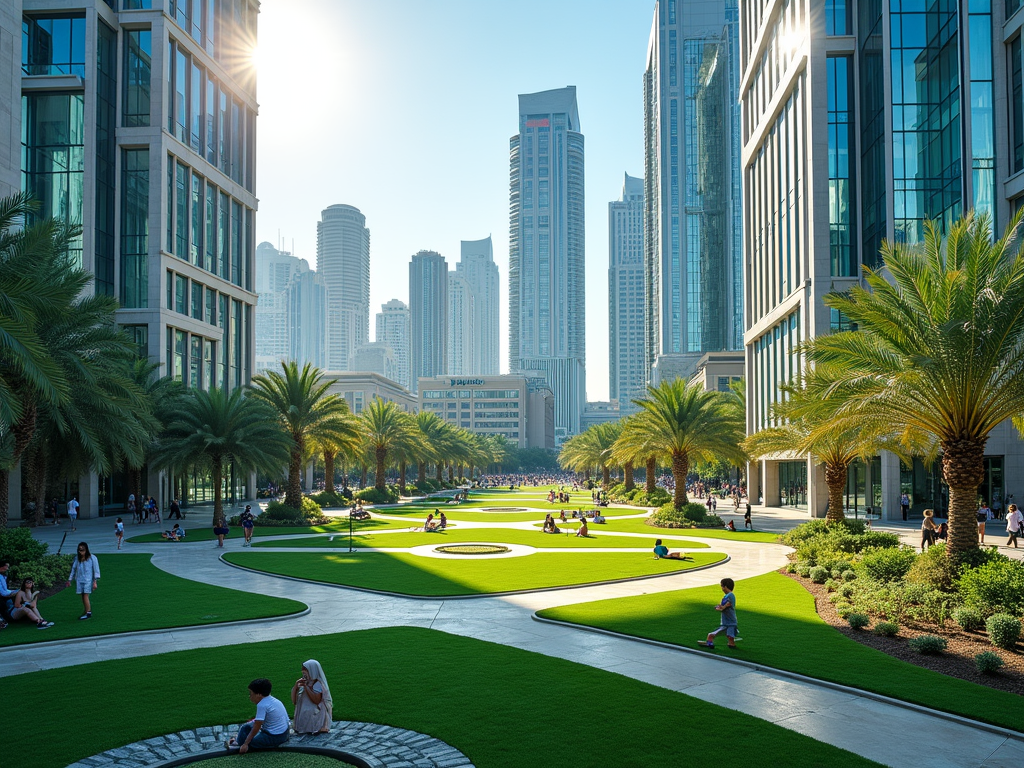Dubai has emerged as a leading financial hub in the Middle East, attracting numerous international banks seeking to establish a foothold in the region. The strategic location, robust infrastructure, and business-friendly regulations contribute significantly to its appeal. Moreover, the city’s vibrant economy and diverse business landscape create a conducive environment for banking operations. In this article, we will explore the key factors that make Dubai an attractive destination for international banking institutions.
The Strategic Geographic Location

One of the foremost reasons international banks prefer Dubai is its strategic geographic location. Situated at the crossroads of Europe, Asia, and Africa, Dubai serves as a vital gateway for trade and commerce. This advantageous position allows banks to facilitate transactions and services across various continents efficiently. Additionally, the city’s proximity to emerging markets in the Middle East and North Africa (MENA) provides banks with ample growth opportunities.
Furthermore, Dubai’s well-developed transport and logistics infrastructure enable seamless connectivity. The city boasts one of the world’s busiest airports, Dubai International Airport, along with an efficient seaport, Jebel Ali Port. This enhances the bank’s operational capacity, granting easy access to clients and partners in global markets. Such logistics support is crucial for fostering international banking relationships and expanding bank networks.
Business-Friendly Environment

Dubai has established a reputation as a business-friendly environment with its low tax regimes and incentive-driven policies. The absence of corporate taxes for many banking and financial services makes it financially attractive for international banks to set up operations. Unlike many countries, Dubai offers a significant tax break, allowing banking institutions to maximize their profitability without heavy tax burdens.
Moreover, the United Arab Emirates (UAE) government promotes investments in the financial sector through various initiatives. These measures include regulatory frameworks that encourage transparency, stability, and growth. As a result, banks can operate with a higher level of confidence in a supportive regulatory landscape, which fosters the long-term sustainability of operations in Dubai.
Robust Financial Ecosystem
Dubai boasts a robust financial ecosystem that supports a wide range of banking services. The city is home to multiple financial institutions, including commercial banks, investment firms, insurance companies, and asset management entities. This concentration of financial services creates a competitive landscape that fosters innovation and efficiency.
Moreover, Dubai’s financial markets are well-regulated and vibrant, offering liquidity and investment opportunities for banks. The Dubai International Financial Centre (DIFC) acts as a specialized financial free zone, providing world-class regulatory and legal infrastructure tailored for international banks. Here are key advantages of the financial ecosystem:
- Access to a diverse client base: Dubai attracts affluent individuals and businesses from around the globe.
- Innovation and fintech: The growing fintech sector in Dubai enables banks to adopt cutting-edge technology.
- Multicultural workforce: Dubai’s diverse demographics offer banks access to a skilled workforce with global perspectives.
- Financial products and services: Banks can provide a wide array of services catering to varied customer needs.
Regulatory Framework and Stability
The stability of Dubai’s banking sector is underpinned by a robust regulatory framework that inspires confidence among international banks. The Central Bank of the UAE enforces stringent regulations to ensure sound risk management practices within banks. This regulatory consistency is vital for maintaining trust with depositors and investors.
Additionally, Dubai’s commitment to anti-money laundering (AML) and counter-terrorism financing (CTF) regulations enhances the integrity of its financial systems. Such measures not only protect the banking sector but also contribute to the overall economic stability of the region. The financial stability and sound regulatory practices make it easier for banks to attract global investors, further enhancing their operations in Dubai.
Conclusion
In conclusion, Dubai’s strategic location, business-friendly policies, robust financial ecosystem, and stable regulatory framework converge to create an ideal landscape for international banks. The city’s advantages are further enhanced by its vibrant economy and the presence of a diverse clientele. As global banking continues to evolve, Dubai will likely remain at the forefront as a preferred location for financial institutions seeking growth and success in the region.
Frequently Asked Questions
1. Why are tax incentives significant for banks in Dubai?
Tax incentives allow banks to maximize their profitability, reduce operational costs, and attract more clients without the burden of heavy taxation that is common in many other countries.
2. How does Dubai’s strategic location benefit banks?
Dubai’s geographic location allows banks to facilitate trade and transactions effectively across Europe, Asia, and Africa, providing ample opportunities for client expansion in emerging markets.
3. What role does the DIFC play in Dubai’s banking industry?
The Dubai International Financial Centre offers a specialized free zone with a legal and regulatory framework focused on attracting international banks, providing them with the necessary infrastructure for their operations.
4. How does Dubai ensure the stability of its banking sector?
Through stringent regulations enforced by the Central Bank of the UAE, including risk management protocols, AML, and CTF measures, Dubai maintains a stable and trustworthy banking environment.
5. What type of workforce is available for international banks in Dubai?
Dubai’s diverse workforce comprises skilled professionals from various industries and cultures, providing banks with the talent necessary to operate effectively in a globalized economic landscape.


